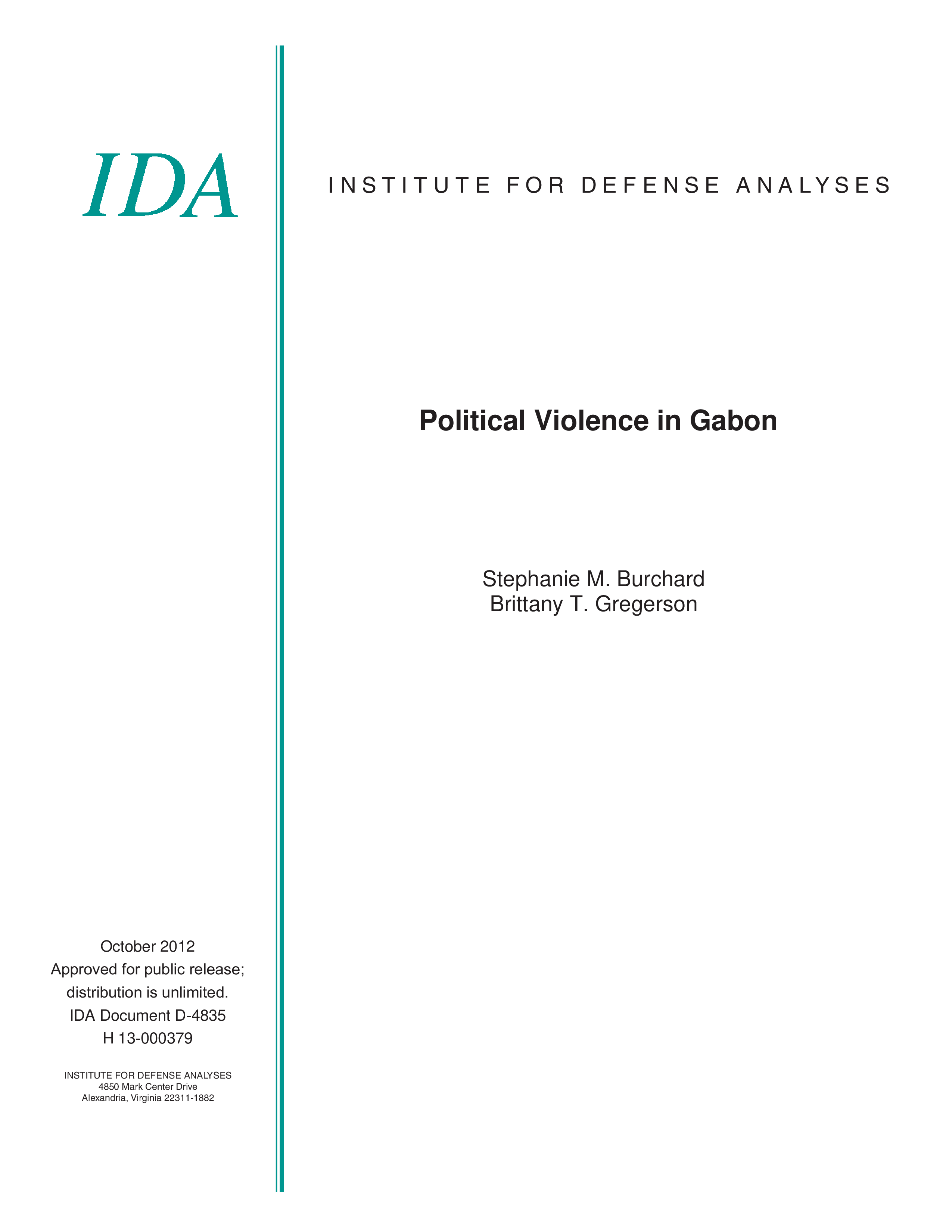Political Violence in Gabon
October, 2012
IDA document: D-4835
FFRDC: Systems and Analyses Center
Type: Africa,
Documents
Division: Intelligence Analyses Division,
Global Dynamics and Intelligence Division
Authors:
IDA document: D-4835
FFRDC: Systems and Analyses Center
Type: Africa
Division: Intelligence Analyses Division
Authors:
Authors
Stephanie M. Burchard, Brittany T. Gregerson
See more authors

